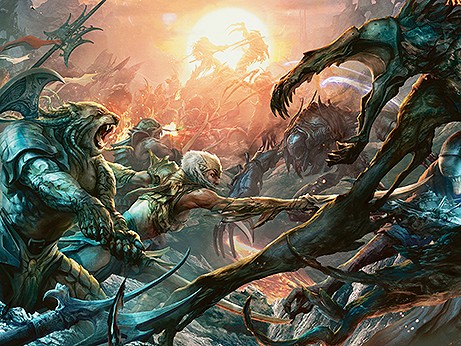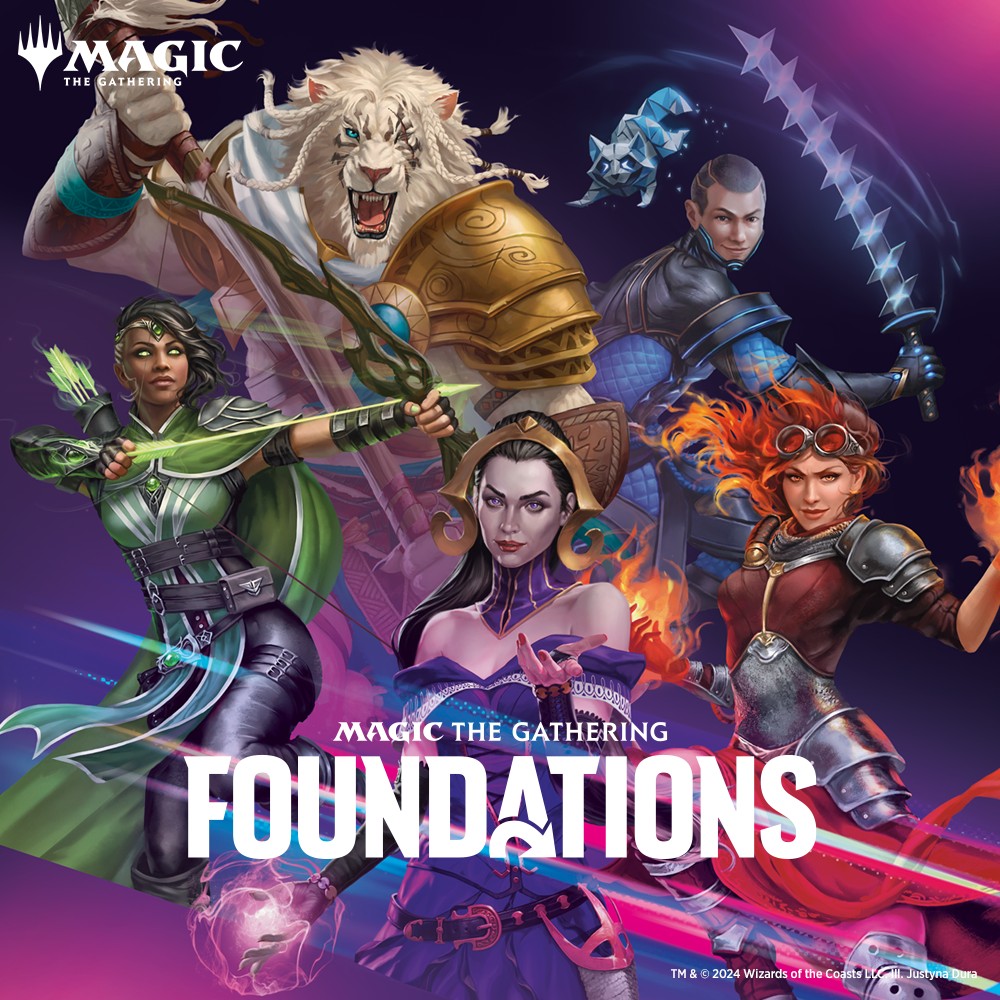Welcome back everyone! This week we’ll be examining competition at a meta level, namely the fun produced by having someone in your group that just seems to have all the answers, all the cards and all the aggro pointed at him.
Having rivals can’t be understated. It leads to a game thriving, a metagame shifting, and card choices becoming narrower as a laser-like precision is used to exploit flaws in an opponent’s deck. Even in the case of casual formats, nominally Commander in our case, there is a sense of validation and accomplishment from doing well and doing better than others. Given that, how do rivalries break down on a deeper level?
Geographic Rivalries
These are obviously more obvious at the profession (or even amateur) sport level. A striking example, diminished these days by team quality, is the Ottawa Senators & Toronto Maple Leafs competitions. Fresh off a thrashing at the hands of the locals, I’ve been making wise and simply moving on. Had we won, I would have been (more) insufferable. Does this carry over the Magic: The Gathering? Probably not outside of the higher levels, but there has been some snark levied in the past across provincial borders and so on.
Does a player from Orléans really dislike one from Centretown? What’s more likely is they prefer their stores and environments and might have some (perhaps strong) differences of opinion on Magic and so on. These rivalries can certainly increase if one play area becomes preferred for whatever reason by the playerbase.
Event Rivalries
The crucible of rivalry play is tournament play. It is here that the best players prove themselves and advance in event ranks and, inevitable, in player estimation. While the Pro Tour can certainly be viewed as the highest level, and we’ll examine some store-based rivalries in the following, even your local events can bring some rivalry to play. If I face off against Larry, and Larry has a deck that counters my strategy, then I need to adapt. The adaptation can take the form of changes to deck composition (perhaps adding specific silver bullets) or just practice to find the opponent’s weaknesses.
If we go back to Wizards’ archives here we see the beginnings of the Grudge Match. Nominally to foster competition between Your Move Games and New York based Neutral Ground, the stores had qualifier events where the best player faced the other store’s best player. Outside of a fun event, this allowed more commerce to flow through both stores and allowed some deck innovation which would carry on to greater tournaments. For example, the Parallax Tide–Replenish deck by Donald Lim, and Bob Maher’s Oath of Druids concoction.
As well, in competition friendships are formed and from friendships, teams. More great minds sticking together leads to better decks and better event results, making life better for all involved.
Feature Matches
In an environment where there are multiple good players, or perhaps several good players who haven’t played each other much, the feature match is a great way to get things going. Generally, at a separate event table with a camera setup and its own playmats and dice, this match is a great place for the players to throw a little more pepper to what might be an otherwise stale event. In larger events, these might draw crowds and if the players know either then the added jibes will be all the more enjoyable and true to the heart.
As an example, here are Gabriel Nassif and Frank Karsten facing off in round four of Pro Tour: Battle for Zendikar. Both are obviously having a good time, the play is tight and even though one teammate will defeating another, the game won’t be a walk for either of them, moreso since they’ve likely tested this dozens of times over the past while.
What about us?
Coming back to Commander, rivalries were more evident when tournaments were going full swing (especially at Comic Book Shoppe during the Gauntlet era); I knew I had to step my game up when facing Gilles Labelle, Steven Ciarroni or Robert McEachern (to name a few while remembering many, many other proficient players) because their efficiency, testing, and knowledge meant that you couldn’t just show up and expect a “virtual bye” to round two and so on.
These days when casual play is more the norm, it’s up to each of us to make our own rivalries, memories, and challenges. The shifting metagames from one store to the next make this difficult, but ultimately we must find our own challenges. There’s always that one person that seems impossible to beat in each store. May it be you in the coming year!
Until next week, may you play some entertaining games.


